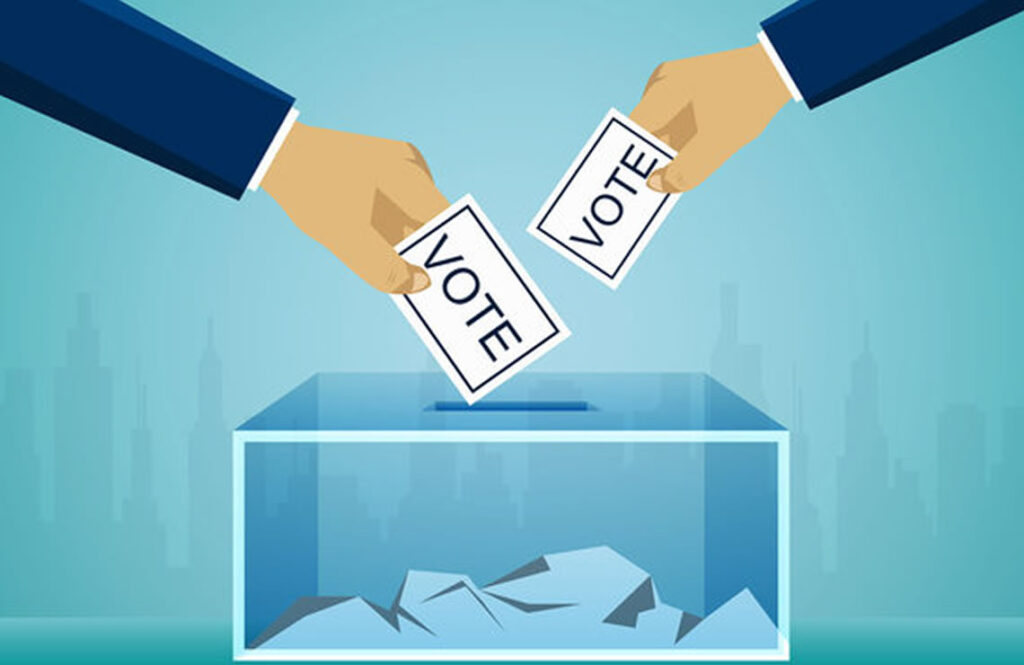Only through collective action can we safeguard the democratic ideals upon which our societies are built
In the realm of democracy, the sanctity of elections stands as a cornerstone, symbolizing the voice of the people and the essence of governance. Yet, recent events in Pakistan and historical occurrences in Jammu & Kashmir serve as stark reminders of the fragility of this democratic ideal.
Allegations of electoral rigging, manipulation, and the stifling of political diversity have cast shadows over the electoral processes, raising serious concerns about the state of democracy.
Pakistan, a nation with a turbulent political history, recently witnessed elections marred by accusations of rigging. The claim resonates loudly, echoing across international borders, as it calls into question the very essence of democratic principles.
In the aftermath of these elections, it became apparent that the political landscape was not shaped by the will of the people but rather by the machinations of a select few. The spectre of manipulation loomed large, shrouding the democratic process in doubt and suspicion.
The political party led by Nawaz Sharif and his allies emerged victorious, but at what cost to democracy? The allegations suggest that the electoral machinery was manipulated to ensure their ascension to power.
Such actions not only undermine the credibility of the electoral process but also erode public trust in the institutions of governance. The world watched as the democratic fabric of Pakistan was torn asunder, revealing the ugly truth of power politics.
However, the saga of electoral malpractice is not confined to the borders of Pakistan alone. Cast your gaze back to 1987, and you will find a similar tale unfolding in Jammu & Kashmir. The Congress Party, in collusion with the National Conference, orchestrated a brazen campaign of electoral fraud to seize power.
The repercussions of these actions were profound, laying the groundwork for decades of unrest and violence in the region. The rigged elections of 1987 served as a catalyst for the birth of terrorism in Jammu & Kashmir.
The disenfranchisement of the people, coupled with the suppression of political dissent, created fertile ground for insurgency to take root. The echoes of those tumultuous events continue to reverberate through the region, serving as a grim reminder of the consequences of electoral manipulation.
What transpired in Jammu & Kashmir in 1987 finds an eerie parallel in the political landscape of Pakistan in 2024. The playbook of electoral rigging, once wielded by political parties, has now been adopted by the deep state to install governments of its choice. The insidious influence of non-elected actors casts a long shadow over the democratic process, subverting the will of the people in favor of vested interests.
The similarities between these events serve as a cautionary tale for democracies around the world. The erosion of democratic norms and the subversion of electoral integrity pose a grave threat to the foundations of governance. When elections are reduced to mere spectacles of power, democracy itself becomes a casualty.
Moreover, the consequences of electoral manipulation extend far beyond the realm of politics. They have profound implications for peace, stability, and human rights.
In Jammu & Kashmir, the stifling of political dissent laid the groundwork for decades of conflict and suffering.
In Pakistan, the erosion of democratic principles fuels disillusionment and discontent among the populace, sowing the seeds of instability.
The collusion between political parties and security agencies undermines the very notion of a level playing field. In Pakistan, the deep state’s interference in the electoral process subverts the democratic will of the people, rendering elections nothing more than a charade.
Rigged elections in Pakistan should serve as an eye opener for the international community. The world should condemn electoral manipulation in all its forms. Democracies must stand united in defense of electoral integrity, holding accountable those who seek to undermine the will of the people.
Only through collective action can we safeguard the democratic ideals upon which our societies are built.
As the world watches with bated breath, the fate of democracy in Pakistan hangs in balance.
The lessons gleaned from the experiences of Pakistan and Jammu & Kashmir serve as a sobering reminder of the fragility of democratic governance.
It is imperative that we remain vigilant in the face of threats to electoral integrity, lest we risk squandering the hard-won gains of democracy for generations to come.
Article Source: https://www.greaterkashmir.com/editorial-page-2/tale-of-two-elections/

